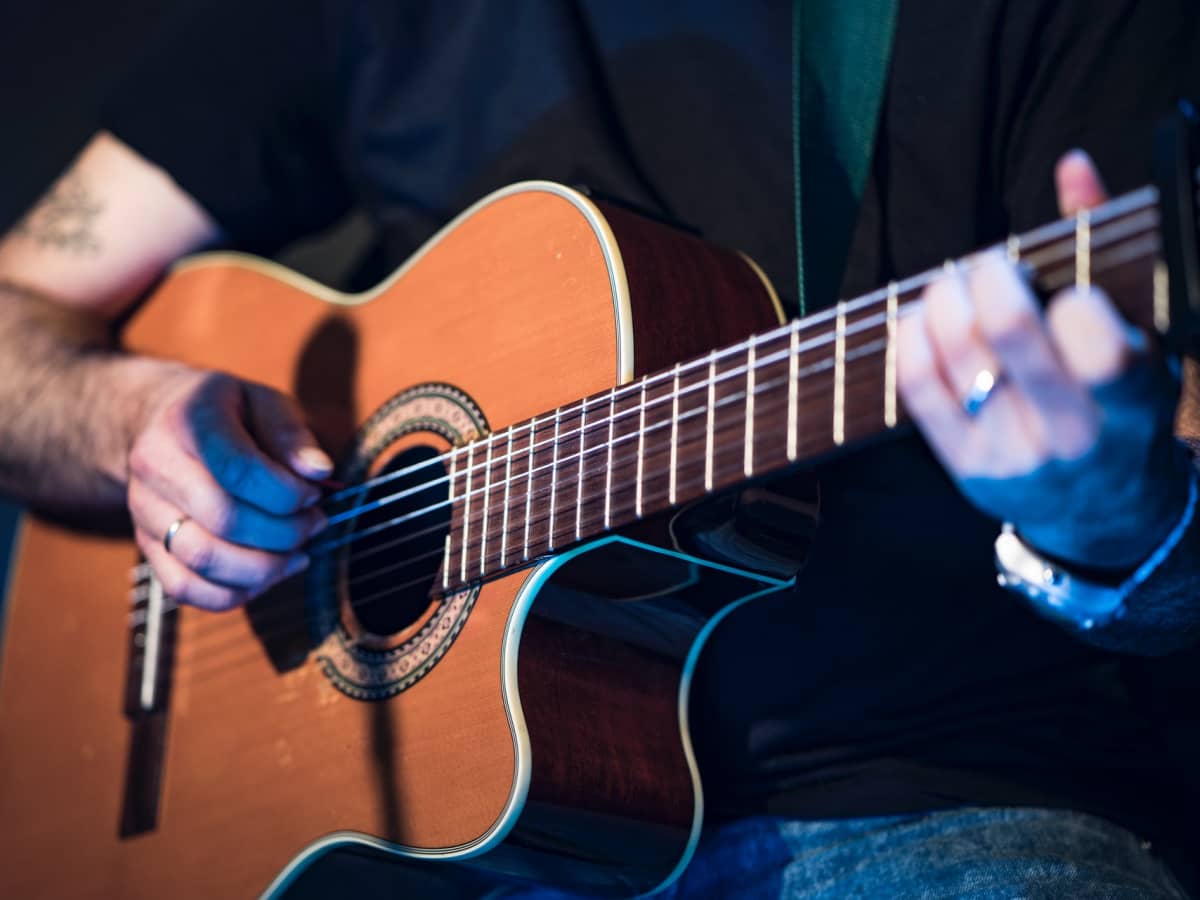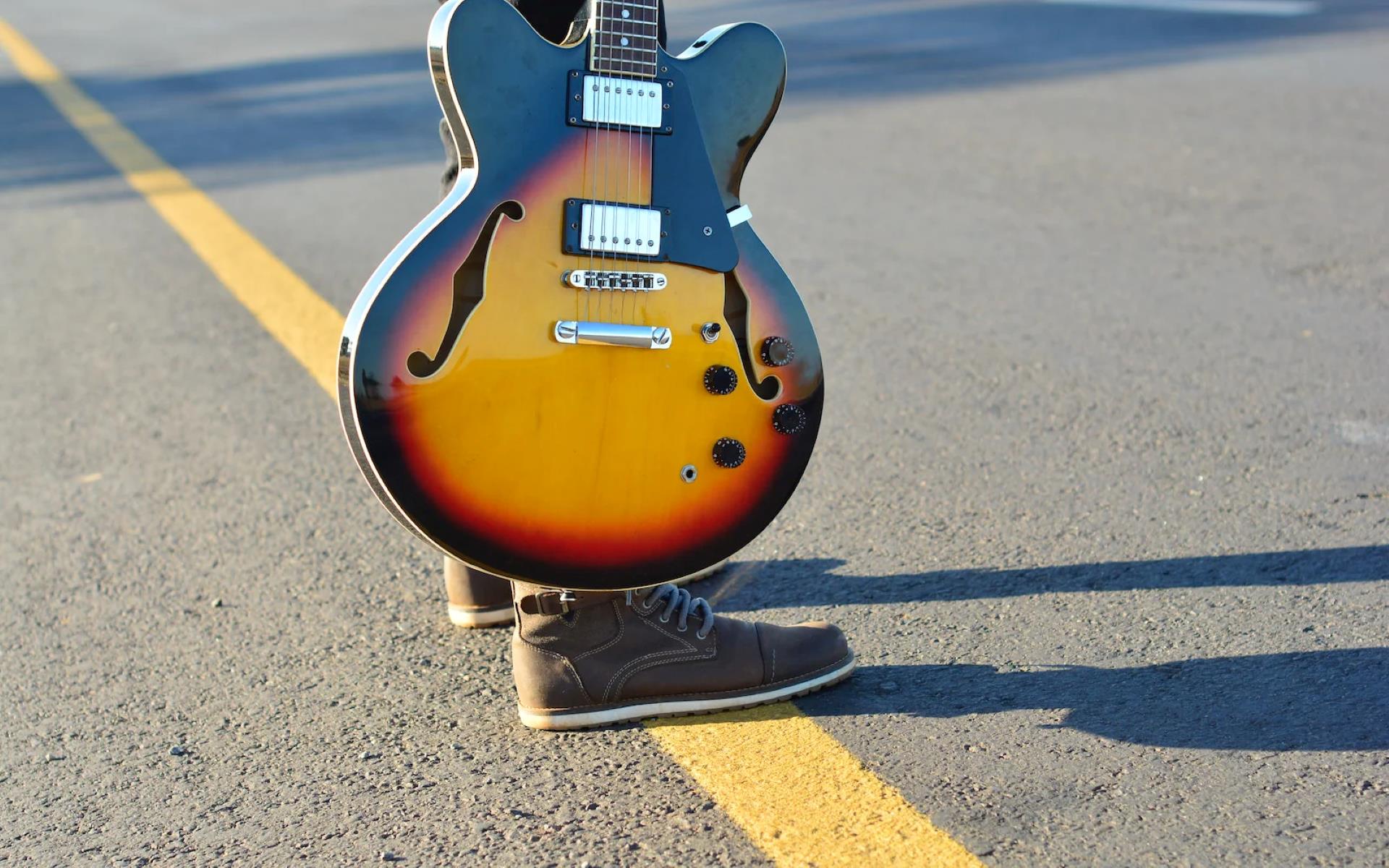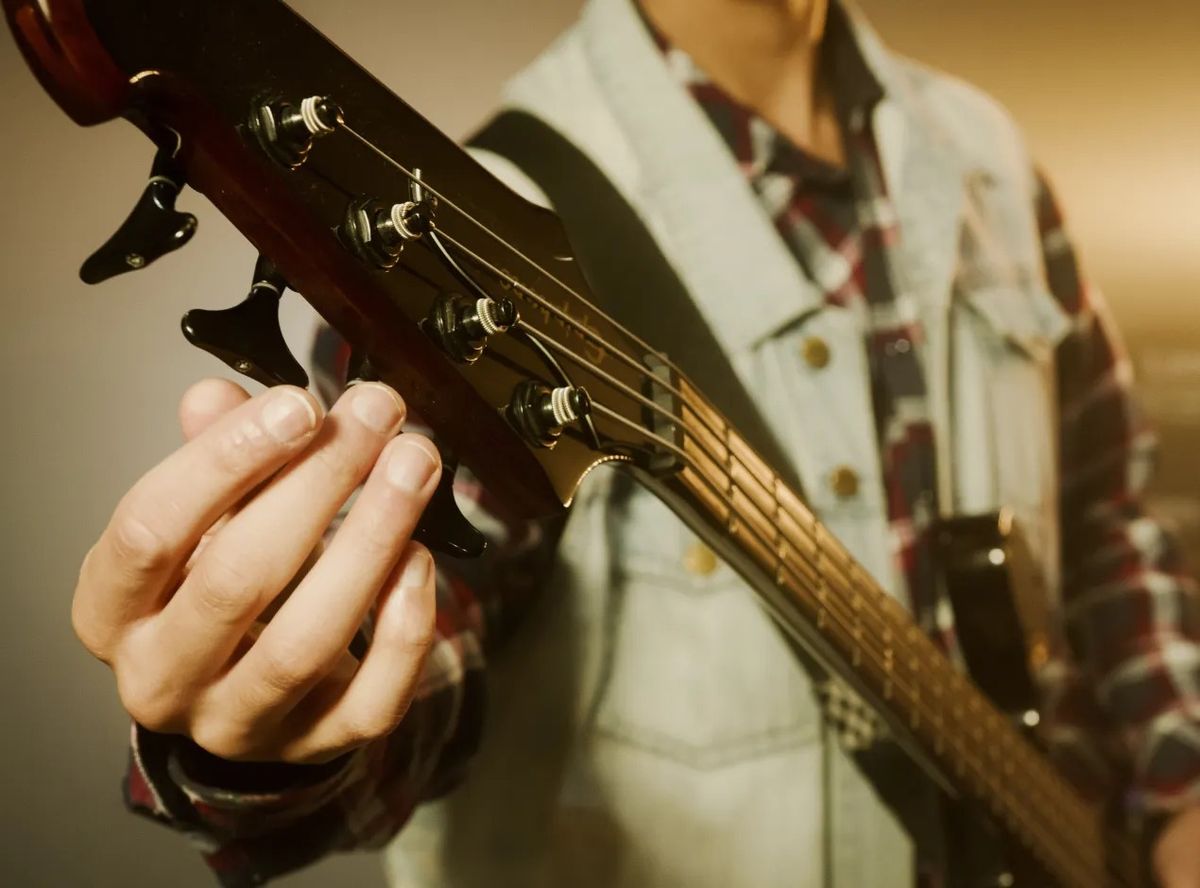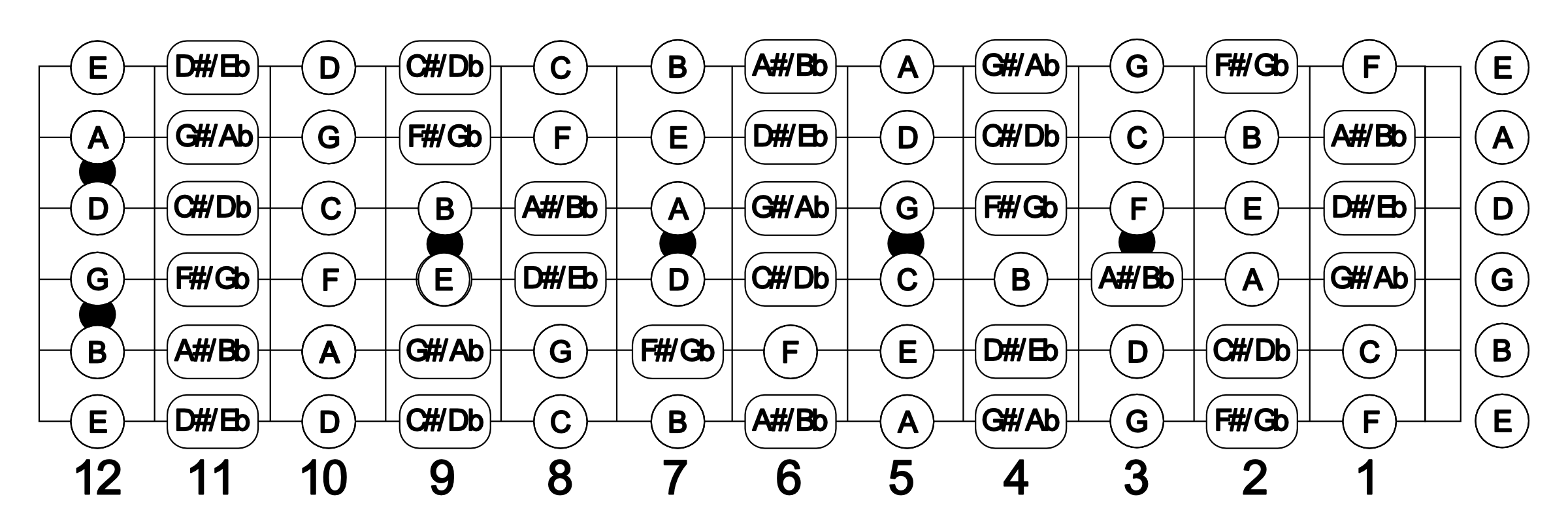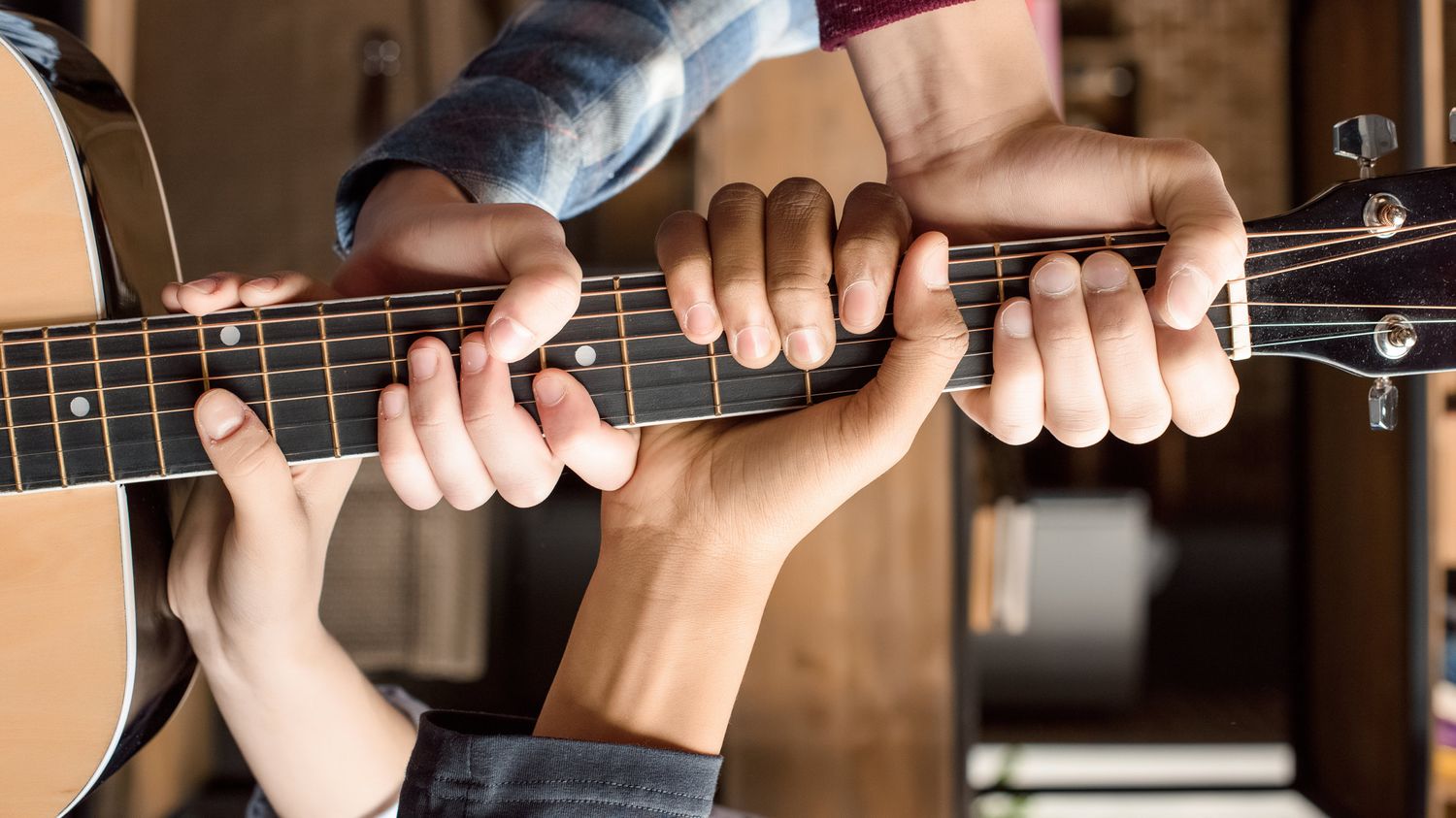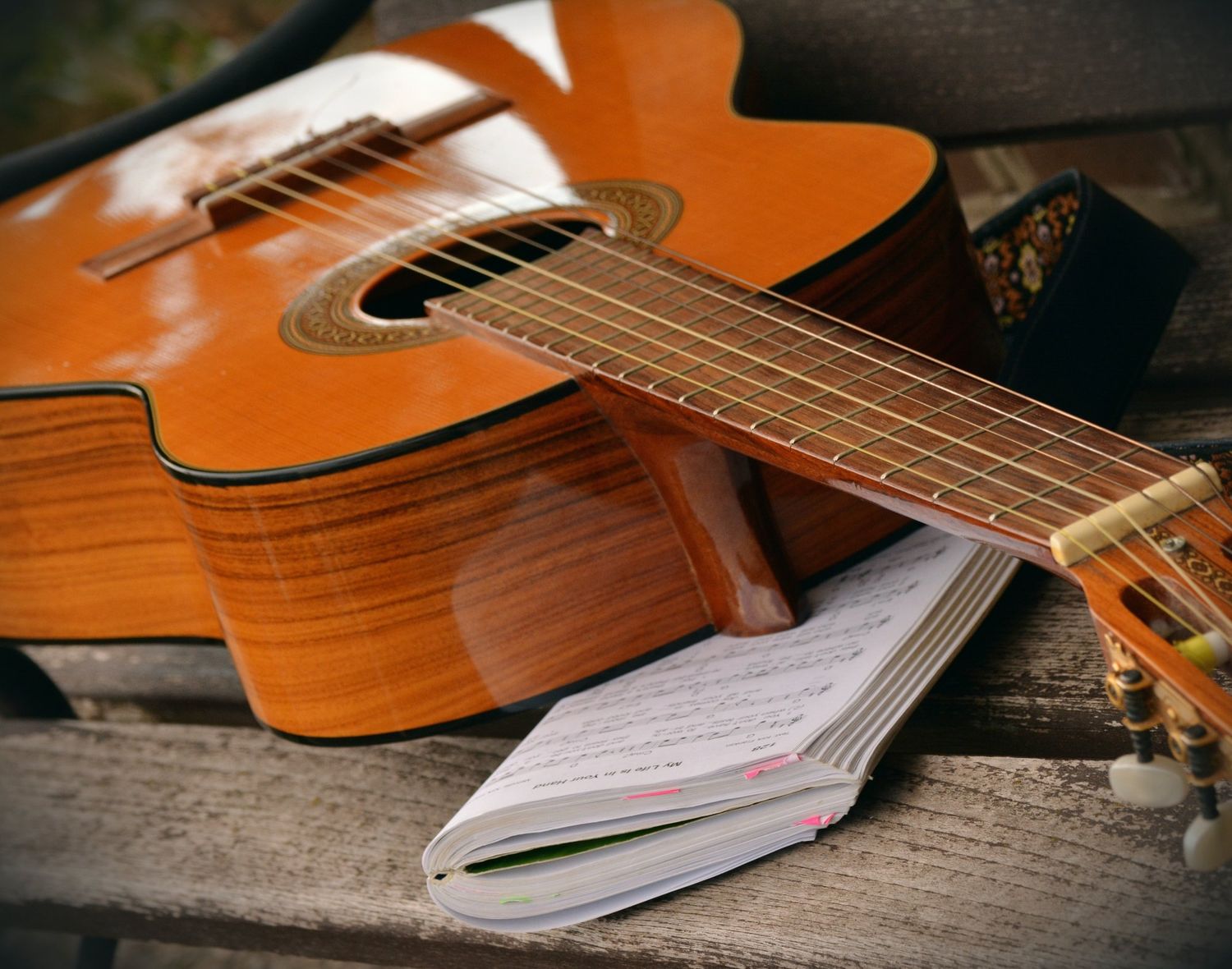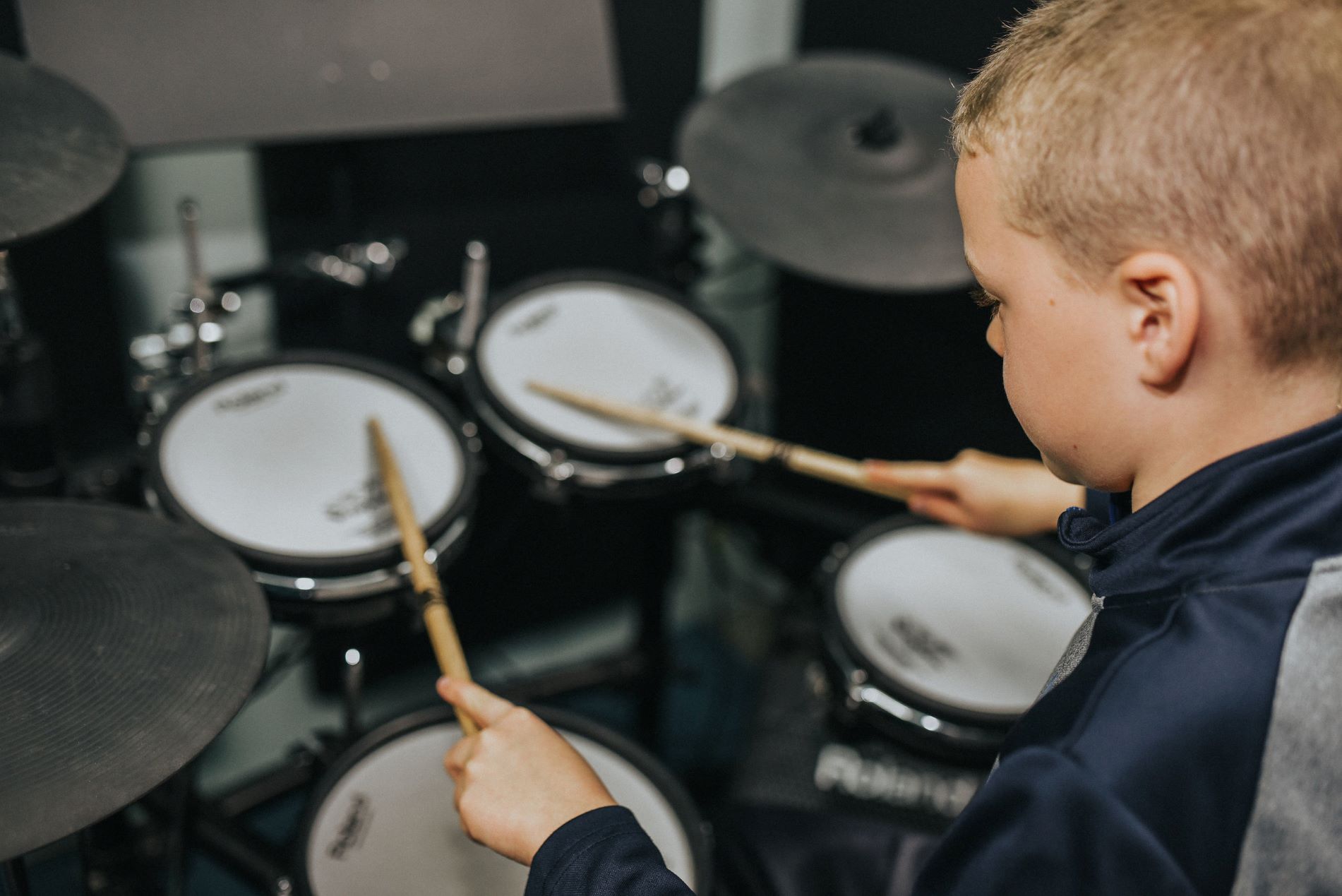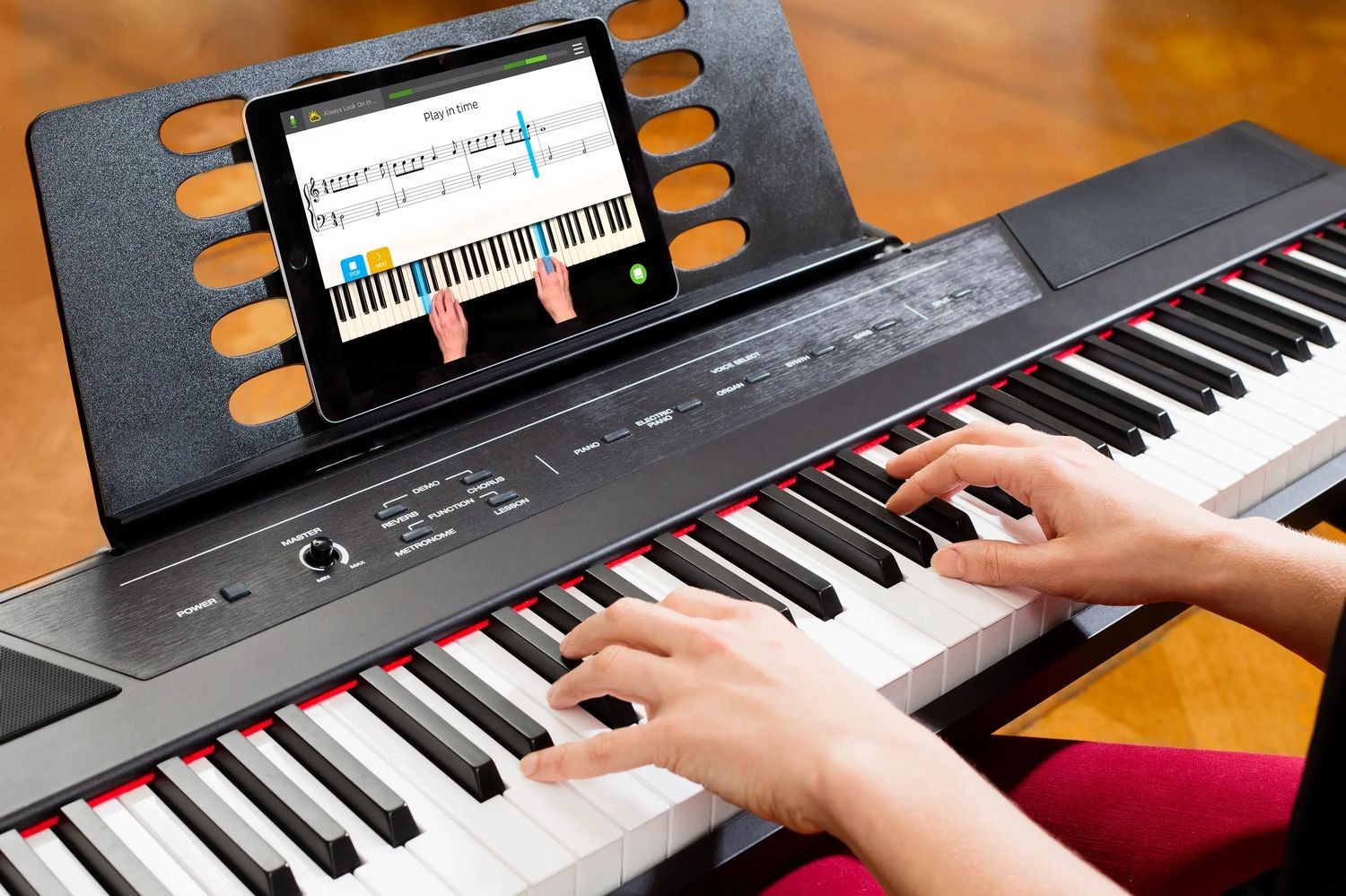Home>Instruments>Guitar>How To Learn To Play Guitar Fast


Guitar
How To Learn To Play Guitar Fast
Modified: February 14, 2024
Learn to play guitar fast with our expert tips and techniques. Master the guitar in no time with our proven methods and step-by-step guidance.
(Many of the links in this article redirect to a specific reviewed product. Your purchase of these products through affiliate links helps to generate commission for AudioLover.com, at no extra cost. Learn more)
Table of Contents
Introduction
So, you've decided to learn how to play the guitar. Congratulations on taking the first step toward mastering this versatile and beloved instrument! Whether you're drawn to the soulful strumming of an acoustic or the electrifying riffs of an electric guitar, embarking on this musical journey can be incredibly rewarding. Learning to play the guitar not only allows you to express your creativity and emotions but also offers a myriad of cognitive and emotional benefits.
Playing the guitar can be a fulfilling hobby, a means of relaxation, or even a potential career path. The ability to create beautiful melodies and harmonies with just a few strums or plucks is a skill that can bring joy to both the player and those around them. However, mastering the guitar requires dedication, patience, and the right approach. This comprehensive guide will equip you with the essential knowledge and strategies to expedite your learning process and help you become a proficient guitarist in no time.
Whether you aspire to serenade a loved one with a heartfelt ballad, jam with friends, or perform on stage, this guide will provide you with the foundational knowledge and practical techniques to accelerate your progress. By understanding the fundamental principles of guitar playing, selecting the right instrument, and employing effective practice methods, you can set yourself on the path to success in your musical endeavors. So, grab your guitar, tune the strings, and let's dive into the exciting world of guitar playing!
Choosing the Right Guitar
Before delving into the intricacies of guitar playing, it’s crucial to select an instrument that resonates with your musical preferences and aligns with your learning goals. The type of guitar you choose—acoustic, electric, or classical—will significantly influence your playing experience and the genres you can explore. Here’s a brief overview of each type to help you make an informed decision:
- Acoustic Guitar: Known for its warm and resonant tones, the acoustic guitar is a popular choice for beginners and seasoned players alike. Its portability and self-contained sound make it suitable for playing in various settings, from intimate gatherings to outdoor venues. Whether you prefer strumming folk tunes or fingerpicking classical melodies, the acoustic guitar offers a versatile and expressive sound.
- Electric Guitar: If you’re drawn to rock, blues, jazz, or heavy metal genres, the electric guitar may be your instrument of choice. With its amplified sound and diverse tonal options, the electric guitar enables you to experiment with different effects and styles. While it requires an amplifier to produce sound, the electric guitar’s sleek design and dynamic capabilities make it an exciting option for aspiring rockstars and experimental musicians.
- Classical Guitar: Renowned for its nylon strings and melodic repertoire, the classical guitar is synonymous with timeless compositions and intricate fingerstyle playing. Ideal for those interested in classical, flamenco, or Latin music, the classical guitar offers a rich, mellow sound and a unique playing technique. Its wider neck and softer strings make it well-suited for fingerpicking and intricate chord progressions.
When choosing a guitar, consider visiting a music store to test various models and assess their playability and comfort. Pay attention to factors such as the guitar’s size, neck width, and string action to ensure a comfortable playing experience. Additionally, seek guidance from experienced musicians or instructors who can offer valuable insights into selecting a suitable instrument based on your musical aspirations and physical attributes.
By choosing a guitar that resonates with your musical sensibilities and complements your learning style, you can lay a solid foundation for your guitar-playing journey. Remember, the right guitar is not only a musical instrument but also a source of inspiration and creative expression that can fuel your passion for learning and playing music.
Learning the Basics
As with any skill, mastering the guitar begins with a solid grasp of the fundamentals. Whether you’re a complete novice or transitioning from another instrument, familiarizing yourself with essential techniques, music theory, and proper playing posture is pivotal to your progress. Here are the fundamental aspects to focus on as you embark on your guitar-playing journey:
- Understanding Guitar Anatomy: Familiarize yourself with the various components of the guitar, including the body, neck, headstock, frets, and strings. This knowledge will help you comprehend instructional materials and communicate effectively with other musicians.
- Basic Chords and Scales: Learn fundamental chords such as C, G, D, E, and A, as well as simple scales like the pentatonic and major scales. Mastering these building blocks will enable you to play countless songs and develop finger dexterity.
- Proper Finger Placement: Practice placing your fingers on the fretboard to produce clear and resonant notes. Developing muscle memory and finger strength is essential for executing chords and melodies with precision.
- Rhythm and Strumming Patterns: Understand rhythmic notation and practice strumming patterns to internalize different rhythms and grooves. This skill is crucial for accompanying songs and maintaining a steady tempo.
- Tuning and Maintenance: Learn how to tune your guitar using a tuner or tuning app, and familiarize yourself with basic maintenance tasks such as changing strings and adjusting the action and intonation.
While it’s tempting to dive into learning your favorite songs right away, dedicating time to mastering the basics will set a strong foundation for your musical journey. Consider enrolling in beginner-friendly online courses, seeking guidance from experienced instructors, or utilizing instructional books and videos to gain a comprehensive understanding of these fundamental concepts.
Remember, patience and persistence are key virtues when learning the guitar. Embrace the learning process, celebrate small victories, and maintain a positive attitude as you navigate the initial stages of your musical education. By honing your understanding of the basics, you’ll build a solid framework for exploring more advanced techniques and musical styles in the future.
Practice Techniques
Effective practice is the cornerstone of skill development, and mastering the guitar is no exception. By implementing structured and focused practice techniques, you can enhance your playing abilities and progress more rapidly. Here are some valuable strategies to optimize your practice sessions:
- Consistent Schedule: Establish a regular practice routine to cultivate discipline and continuity in your learning. Consistency is key to reinforcing muscle memory and strengthening your skills over time.
- Warm-Up Exercises: Begin each practice session with warm-up exercises to limber up your fingers and improve flexibility. Simple finger exercises and chromatic scales can help prevent injuries and prepare you for more demanding playing.
- Focused Repetition: When learning new chords, scales, or songs, focus on precise and deliberate repetition. Gradually increase your speed and accuracy while maintaining a relaxed and controlled playing posture.
- Breakdown Complex Passages: Deconstruct challenging passages or techniques into smaller segments and practice them individually. Once you’ve mastered each segment, gradually integrate them to conquer the entire passage.
- Metronome Practice: Utilize a metronome to develop a strong sense of timing and rhythm. Start at a comfortable tempo and gradually increase the speed as you become more proficient.
- Ear Training: Dedicate time to ear training exercises, such as identifying intervals, chord progressions, and melodies by ear. This skill will enhance your musical perception and improvisational abilities.
- Performance Simulation: Mimic performance conditions during practice by playing in front of a mirror or recording yourself. This approach can help alleviate performance anxiety and refine your stage presence.
Additionally, incorporating variety into your practice routine by exploring different genres, techniques, and playing styles can keep your practice sessions engaging and inspiring. Experiment with fingerstyle, flatpicking, and strumming patterns to broaden your musical repertoire and develop a well-rounded skill set.
Lastly, maintain a positive mindset and celebrate incremental progress. Embrace the journey of improvement and view challenges as opportunities for growth. By integrating these practice techniques into your daily routine and staying committed to your musical development, you’ll undoubtedly witness substantial advancement in your guitar-playing abilities.
Utilizing Resources
Embarking on a journey to learn the guitar opens up a world of resources and tools designed to support and enhance your musical education. By leveraging a diverse array of resources, you can gain valuable insights, expand your knowledge, and refine your skills. Here are some essential resources to consider incorporating into your learning process:
- Online Learning Platforms: Explore reputable online platforms that offer structured guitar courses, video tutorials, and interactive lessons. These platforms provide a wealth of instructional content tailored to various skill levels and musical genres, allowing you to learn at your own pace.
- Tablature and Sheet Music: Access tablature (tabs) and sheet music for your favorite songs and compositions. Tabs provide a visual representation of where to place your fingers on the fretboard, while sheet music offers traditional notation for those seeking a deeper understanding of music theory.
- Play-Along Tracks: Utilize play-along tracks and backing tracks to practice playing in sync with a band or accompaniment. These resources help improve your timing, phrasing, and overall ensemble skills.
- Music Theory Resources: Delve into music theory books, websites, or courses to develop a comprehensive understanding of scales, chords, harmony, and composition. A strong foundation in music theory can greatly enhance your improvisation and songwriting abilities.
- Peer Learning and Collaboration: Engage with fellow guitar enthusiasts through online forums, social media groups, or local jam sessions. Collaborating with peers and receiving constructive feedback can foster a supportive learning community and inspire new perspectives on your musical journey.
- Professional Instruction: Consider enrolling in private lessons with a qualified guitar instructor who can provide personalized guidance, constructive critique, and tailored lesson plans to accelerate your progress and address specific areas of improvement.
- Guitar Maintenance and Repair Guides: Familiarize yourself with resources that offer insights into guitar maintenance, setup, and minor repairs. Understanding how to care for and optimize your instrument ensures consistent playability and sound quality.
Furthermore, attending live performances, workshops, and music events can offer firsthand exposure to diverse playing styles and techniques, inspiring you to expand your musical horizons. Immerse yourself in the rich tapestry of guitar music and draw inspiration from accomplished musicians across different genres.
By embracing these resources and integrating them into your learning routine, you can cultivate a multifaceted approach to mastering the guitar, fostering continuous growth and musical enrichment.
Setting Realistic Goals
As you embark on your guitar-playing journey, setting realistic and achievable goals is essential for maintaining motivation and measuring your progress. By establishing clear objectives and milestones, you can chart a deliberate course toward improvement and ensure that your learning experience remains fulfilling and rewarding. Here are some key considerations for setting and pursuing realistic goals in your guitar education:
- Define Your Aspirations: Reflect on your musical aspirations and the specific skills or genres you aim to master. Whether it’s fingerstyle playing, improvisation, or songwriting, clarifying your musical objectives provides a clear direction for your learning journey.
- Break Down Long-Term Goals: Divide long-term goals, such as mastering a challenging piece or performing at a local venue, into smaller, achievable milestones. By focusing on incremental progress, you can avoid feeling overwhelmed and maintain a sense of accomplishment along the way.
- Establish Practice Targets: Set specific practice targets, such as mastering a new chord progression, learning a solo, or improving your speed and accuracy. Consistently achieving these targets reinforces your confidence and motivates further advancement.
- Allocate Learning Time: Determine a realistic amount of time to dedicate to guitar practice each day or week. Balancing your learning commitments with other responsibilities ensures that your goals remain attainable within your schedule.
- Embrace Flexibility: While setting goals is crucial, remain open to adjusting your objectives based on your evolving interests and skill development. Flexibility allows you to adapt to new musical pursuits and refine your goals accordingly.
- Celebrate Achievements: Acknowledge and celebrate each milestone and achievement, no matter how small. Recognizing your progress fosters a positive mindset and reinforces your commitment to continuous improvement.
Moreover, consider documenting your musical journey by maintaining a practice journal or recording your performances. Reviewing your progress over time can provide valuable insights into your development and serve as a source of motivation during challenging periods.
Ultimately, setting realistic goals empowers you to navigate your guitar education with purpose and intention, ensuring that each step contributes to your overall growth as a musician. By embracing a balanced approach to goal setting and progress tracking, you can cultivate a fulfilling and sustainable guitar-playing experience.
Conclusion
Congratulations on embarking on the enriching and melodious journey of learning to play the guitar! As you immerse yourself in the world of music, remember that the path to mastery is paved with dedication, perseverance, and a genuine passion for the instrument. By selecting the right guitar, mastering the basics, implementing effective practice techniques, and leveraging diverse resources, you’ve laid a solid foundation for your musical pursuits.
Throughout your guitar-playing odyssey, embrace the joy of continuous learning and growth. Celebrate the small victories, relish the progress you make, and remain open to exploring new genres and techniques. The guitar is not merely an instrument but a conduit for self-expression, creativity, and emotional resonance.
As you set realistic goals and strive toward achieving them, remember that each chord mastered, melody learned, and performance milestone reached is a testament to your dedication and commitment to the art of guitar playing. Embrace the learning process with patience and an open mind, and allow your passion for music to propel you forward.
Lastly, seek inspiration from the guitarists who have shaped the landscape of music, and let their artistry kindle the flames of your own creativity. Whether you aspire to strum soul-stirring ballads, unleash electrifying solos, or compose your own musical opus, the guitar offers a boundless realm of sonic possibilities to explore.
As you continue your musical journey, remember that mastery is not a destination but a lifelong pursuit. Embrace the music that moves you, share your melodies with the world, and revel in the transformative power of the guitar. With each note, you weave a tapestry of emotions and stories, creating a symphony that resonates with the depths of the human experience.
So, pick up your guitar, let the strings reverberate with your passion, and embark on a harmonious voyage filled with discovery, creativity, and the timeless allure of music. The world awaits the melodies only you can create, and the guitar stands as your faithful companion in this captivating musical odyssey.

